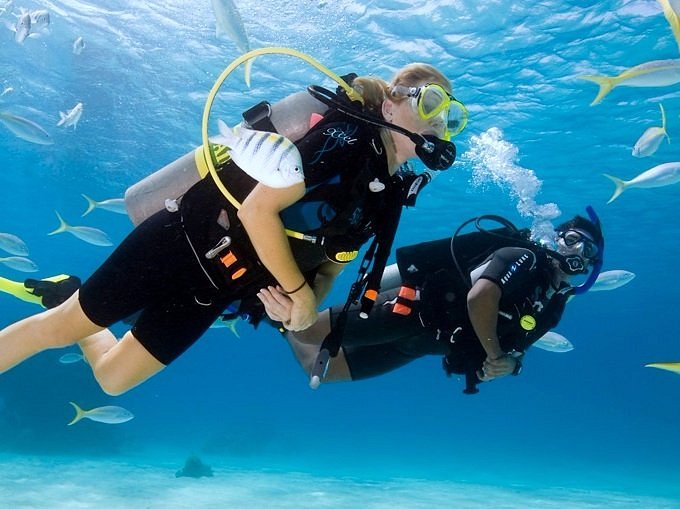
Rising Tide: Exploring Scuba Diving’s Growing Popularity
Scuba diving, once considered an activity reserved for adventurous explorers, has seen a surge in popularity in recent years. More and more individuals are taking the plunge into the depths of the underwater world, captivated by its beauty and allure. In this article, we delve into the reasons behind the increasing popularity of scuba diving and hear from two experts who shed light on this trend.
One of the primary factors driving the rising popularity of this new sport is the opportunity to explore the breathtaking underwater world. With over 70% of the Earth’s surface covered by water, scuba diving provides a unique and immersive experience unlike any other. From vibrant coral reefs teeming with marine life to mesmerizing shipwrecks and underwater caves, divers are drawn to the opportunity to witness nature’s wonders up close and personal.
According to Dr. Emma Carter, a renowned marine biologist, “Scuba diving offers a window into an ecosystem that remains largely unexplored and inaccessible to the average person. People are naturally curious about the mysteries of the ocean and its diverse inhabitants. The chance to see marine life in their natural habitat, observe their behavior, and contribute to conservation efforts has fueled the growing interest in scuba diving.”
Technological advancements have made scuba diving more accessible to a broader range of individuals. Innovations in equipment design and manufacturing have resulted in lighter, more comfortable gear, making it easier for beginners to get started. Additionally, dive centers and resorts have become more prevalent, offering certification courses and guided dives in popular diving destinations. This increased accessibility has opened the doors for more people to experience the thrill of scuba diving.
Mark Davis, a PADI Master Scuba Diver Trainer, weighs in on the subject, stating, “The improvements in scuba diving equipment have made the sport more comfortable and user-friendly. Modern dive gear is lightweight, streamlined, and intuitive to use, reducing barriers for entry. Furthermore, the availability of professional training centers and experienced instructors worldwide has made it easier for individuals to learn and gain confidence in their diving abilities.”
Scuba diving offers more than just a thrilling adventure; it also provides numerous physical and mental health benefits. The tranquility of the underwater environment, coupled with the rhythmic breathing and weightlessness experienced while diving, creates a sense of calm and relaxation. This unique combination can help reduce stress, promote mindfulness, and improve overall well-being.
The growing concern for the environment and marine conservation has also played a significant role in the increasing popularity of scuba diving. Divers often develop a deep appreciation for the fragile underwater ecosystems they encounter, leading to a heightened sense of responsibility for their protection. Many organizations and dive operators actively promote sustainable diving practices and participate in conservation initiatives, attracting environmentally conscious individuals to the sport.
Dr. Lisa Reynolds, an environmental scientist specializing in marine conservation, emphasizes the impact of scuba diving on environmental consciousness, stating, “Scuba divers often become ambassadors for the oceans. The firsthand experience of witnessing the beauty and vulnerability of marine ecosystems instills a sense of urgency and fosters a desire to protect them. Many divers actively engage in conservation efforts, from participating in clean-up dives to supporting research and advocating for sustainable practices.”
Scuba diving has transformed from a niche activity into a mainstream adventure pursued by people from all walks of life. The allure of exploring the underwater world can be attributed to a combination of factors, including the allure of adventure and exploration, enhanced accessibility and training programs.
